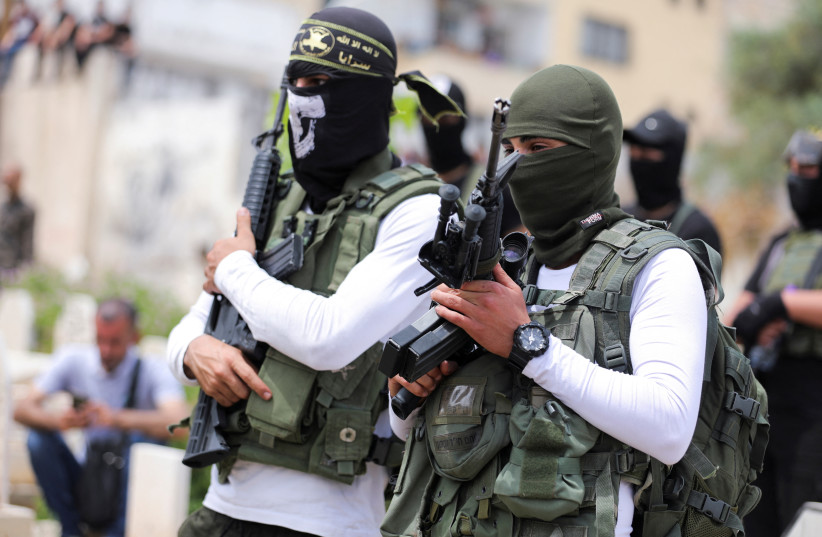A nation, said John F. Kennedy in October 1963, just a month before he was assassinated, “reveals itself not only by the men it produces but also by the men it honors, the men it remembers.”
How true, not only of nations, but also different societies, and segments within those societies. Whom do they honor? Whom do they lionize? So much can be learned about people by understanding who their heroes are. Are their heroes celebrities or scientists? Athletes or teachers? Multibillionaires or social workers?
It is in this vein that The Jerusalem Post’s lead headline on Monday was so terribly troubling and so dismally depressing: “Palestinian terror groups applaud Jerusalem attack, call for more ‘heroic operations.’”
A Palestinian terrorist goes on a shooting spree in the middle of the night in Jerusalem, wounding eight innocent people – including critically wounding an American Jewish woman in her 26th week of pregnancy who is shot in the stomach – and the reaction of a segment of Palestinian society is to term the operation “heroic,” thereby coronating its perpetrator a hero.
Why can't the conflict be solved?

Those well-meaning people around the world who can’t understand why the Israelis and Palestinians can’t just find a way to solve their problems and move on already, need to look no further than that headline to understand.
How is peace possible with those who view as heroic the shooting in the stomach of a woman in her 26th week of pregnancy? How is peace possible with people who put in their pantheon of heroes the person who carried out such an attack? What kind of accommodation can possibly be made with those who view an act so despicable as one that is heroic?
Ah, will come the predictable counterargument, Israelis also kill Palestinians, just look at how many Palestinians have been killed this year by the IDF.
Yes, unfortunately, the IDF also kills Palestinians. Some Palestinian civilians were killed last week by the IDF in Operation Breaking Dawn. But those deaths – deeply regrettable – were the unintentional results of legitimate actions of self-defense. And when they are not – as was Elor Azaria’s killing of a neutralized terrorist in Hebron in 2016 – there is a societal outcry.
Another predictable counterargument is that there are also Jewish terrorists – Baruch Goldstein, as an example, and the killer of three members of the Dawabsheh family in Duma in 2015. People also point to the violence carried out by fringes among the settlement youth.
Yes, unfortunately, there have been cases of Jewish terrorism. But to compare the numbers is as outlandish as it is ludicrous. And when there are those few instances of Jewish terror, they are unequivocally and forcefully condemned by the officials and instruments of the state, as well as by the vast majority of the country repulsed by such action. Both then-president Reuven Rivlin and then-prime minister Benjamin Netanyahu visited a surviving member of the Dawabsheh family in the hospital shortly after the Duma attack.
Contrast that with this well-worn paragraph that appeared in the Post’s story about Sunday morning’s Jerusalem atrocity: “The Palestinian Authority did not immediately comment on the attack.”
What do Palestinians actually think?
Hamas and Islamic Jihad’s applause for the attack does not represent all Palestinian opinion on the matter, nor even does the PA’s silence.
Undoubtedly decent people in the West Bank are sickened by the attack. Sadly, however, their voices are not raised, and if they are raised, they are not heard by the Israeli public.
Where are the social media posts in Arabic from the West Bank saying, “not in our name?” Where are the east Jerusalem Arabs marching down Salah a-Din Street, carrying signs expressing sympathy for the Jewish victims of this attack that took place on their doorstep, by one of their sons?
When those voices are heard, a glimmer of hope will emerge. But until that happens, and when the only voices Israelis hear after Palestinian attacks are those of men distributing celebratory sweets, or praising the actions as heroic and calling for more and more and more, then any talk of accommodation seems discouragingly remote and hollow.
Actions leave an impact, as do how societies react to those actions, and whom they admire and call their heroes.
